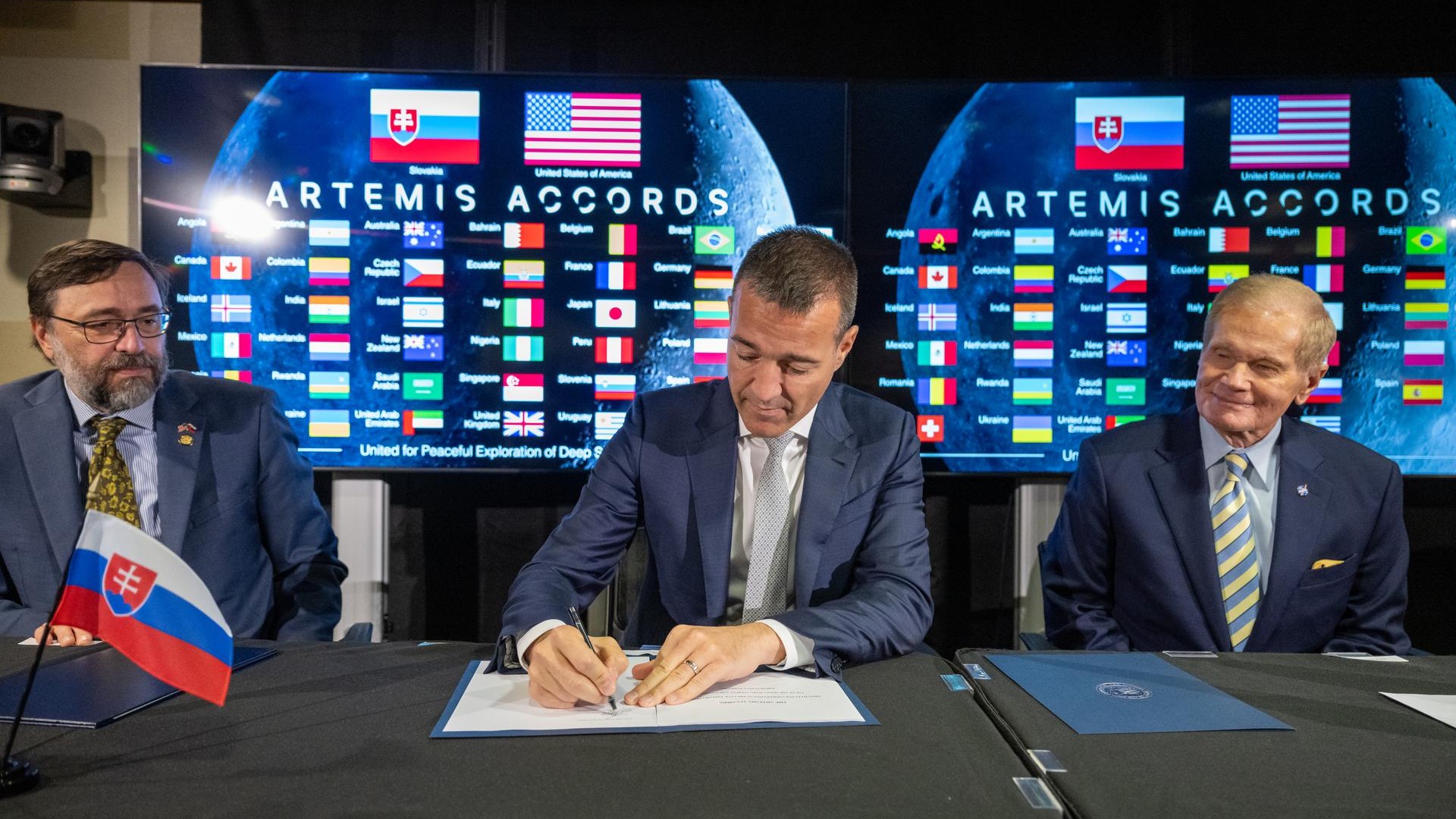Peru and Slovakia sign the Artemis Accords for peaceful moon exploration
42 countries have now signed on for "peaceful, transparent, and responsible exploration of space for the benefit of all."

Breaking space news, the latest updates on rocket launches, skywatching events and more!
You are now subscribed
Your newsletter sign-up was successful
Want to add more newsletters?

Delivered daily
Daily Newsletter
Breaking space news, the latest updates on rocket launches, skywatching events and more!

Once a month
Watch This Space
Sign up to our monthly entertainment newsletter to keep up with all our coverage of the latest sci-fi and space movies, tv shows, games and books.

Once a week
Night Sky This Week
Discover this week's must-see night sky events, moon phases, and stunning astrophotos. Sign up for our skywatching newsletter and explore the universe with us!

Twice a month
Strange New Words
Space.com's Sci-Fi Reader's Club. Read a sci-fi short story every month and join a virtual community of fellow science fiction fans!
This week, two more nations signed the Artemis Accords.
NASA held a ceremony at its headquarters in Washington, D.C. on Thursday (May 30) to host representatives from both Slovakia and Peru. During the event, both countries signed the agency's Artemis Accords, a set of principles that aims to lay out a framework for peaceful cooperation in space and on the moon.
The addition of these two nations brings the total of signing countries to 42. The Artemis Accords were first launched and signed in October 2020 by eight nations, including the United States.
Related: Artemis Accords: What are they & which countries are involved?
NASA chief Bill Nelson lauded the addition of both countries in two separate agency statements.
"The United States and Slovakia share a deep understanding of the power of exploration. Through this new chapter in our nations' partnership, we will further this global coalition to explore the cosmos openly, responsibly, in peace,” Nelson said of Slovakia's participation. The country's Minister of Education, Research, Development and Youth, Tomáš Drucker, signed the Accords on behalf of Slovakia.
Similarly, the NASA administrator said in a separate statement that the "giant leap forward" for Peru and the United States is the "result of decades of work Peru has done to further its reach in the cosmos." Javier González-Olaechea, Peru's foreign minister, signed the Accords on behalf of the nation.
Breaking space news, the latest updates on rocket launches, skywatching events and more!
While the Artemis Accords seek to establish a set of norms for space exploration in general, they have a strong focus on the moon, hence why they share a name with NASA's Artemis program of human moon exploration missions.
Through the Artemis program, NASA and its international partners aim to establish a permanent and sustainable human presence on the moon by around the end of the decade. The campaign has launched one mission thus far, Artemis 1, which sent the uncrewed Orion spacecraft around the moon and back in late 2022.
Developing the infrastructure needed to sustain a human presence on the moon will be a much more ambitious undertaking, and NASA will need to cooperate with international partners to make it all happen, the agency has stressed.
Some nations that have signed on to the Accords are already well-established in space, such as France, Germany, India, Israel, Japan, South Korea and the United Kingdom.
China is also eyeing its own permanent presence on the moon, and aims to develop the International Lunar Research Station in the 2030s alongside its partners such as Russia, Ethiopia, Kenya and Azerbaijan.

Brett is curious about emerging aerospace technologies, alternative launch concepts, military space developments and uncrewed aircraft systems. Brett's work has appeared on Scientific American, The War Zone, Popular Science, the History Channel, Science Discovery and more. Brett has degrees from Clemson University and the University of North Carolina at Charlotte. In his free time, Brett enjoys skywatching throughout the dark skies of the Appalachian mountains.
